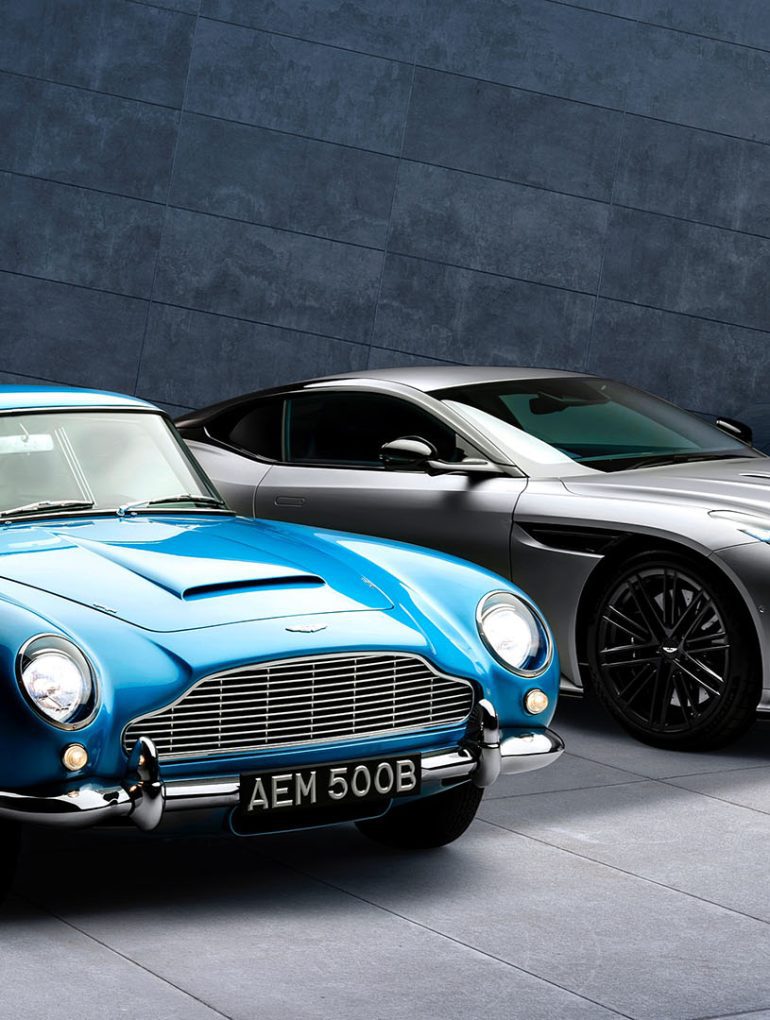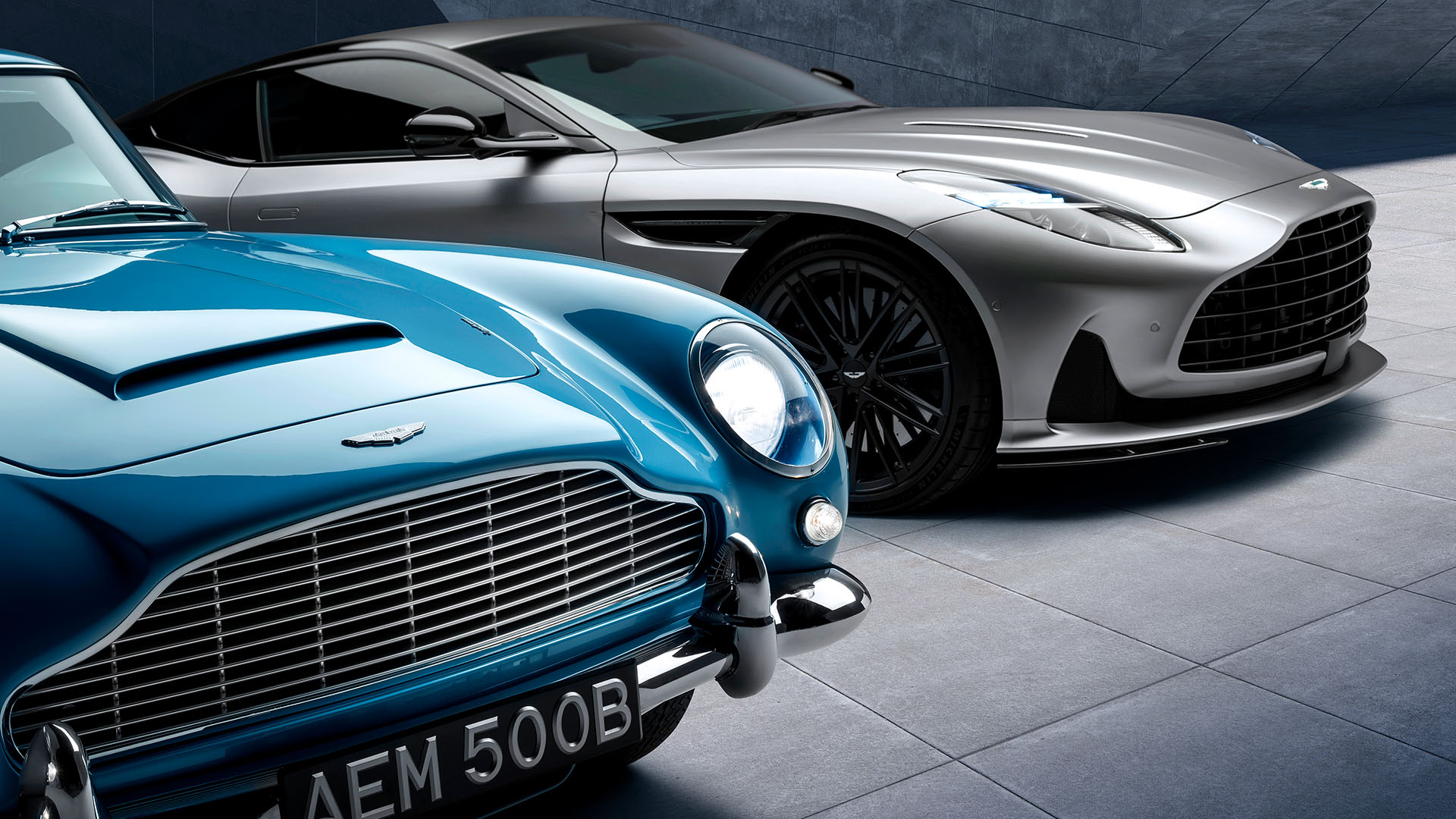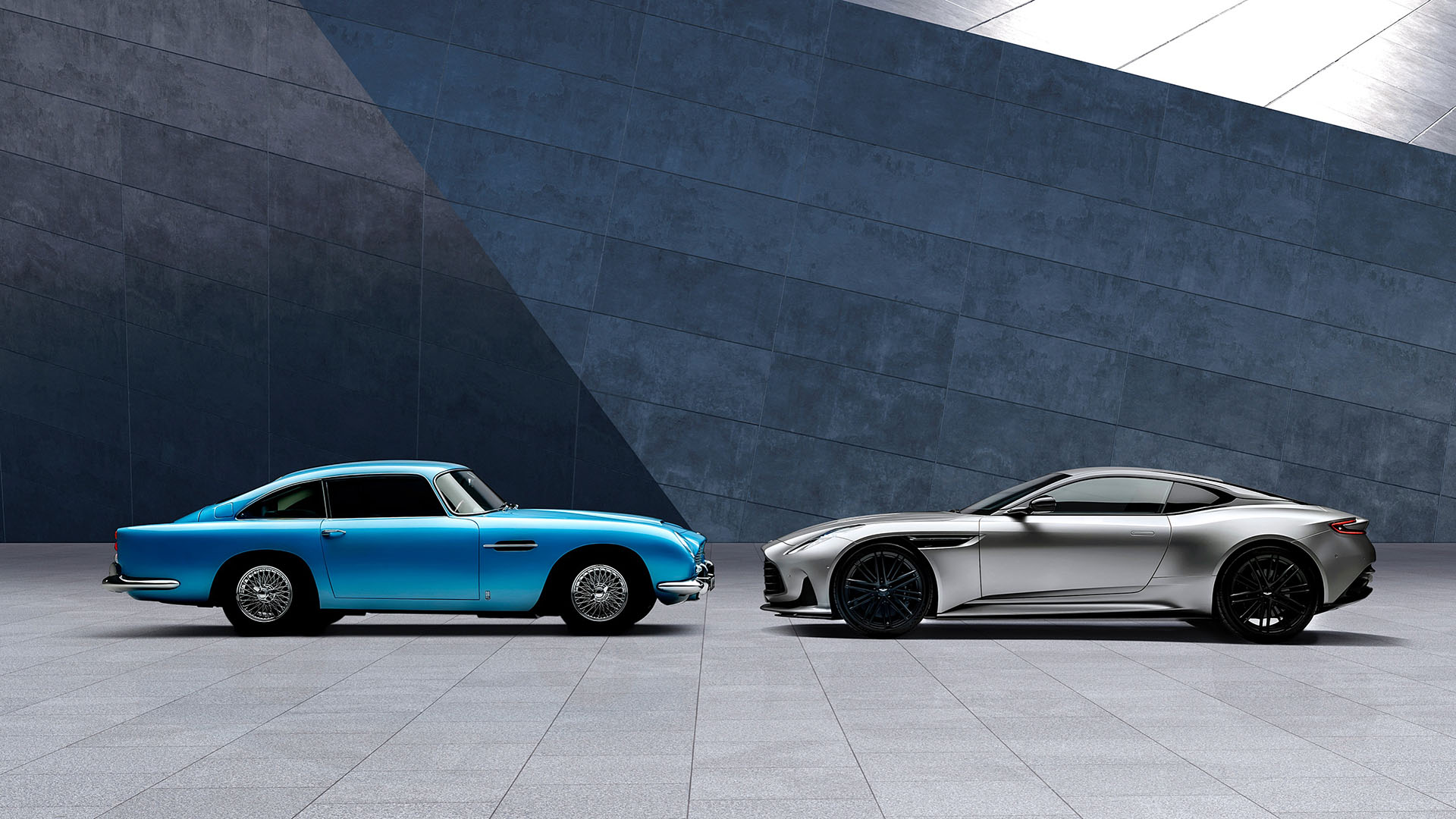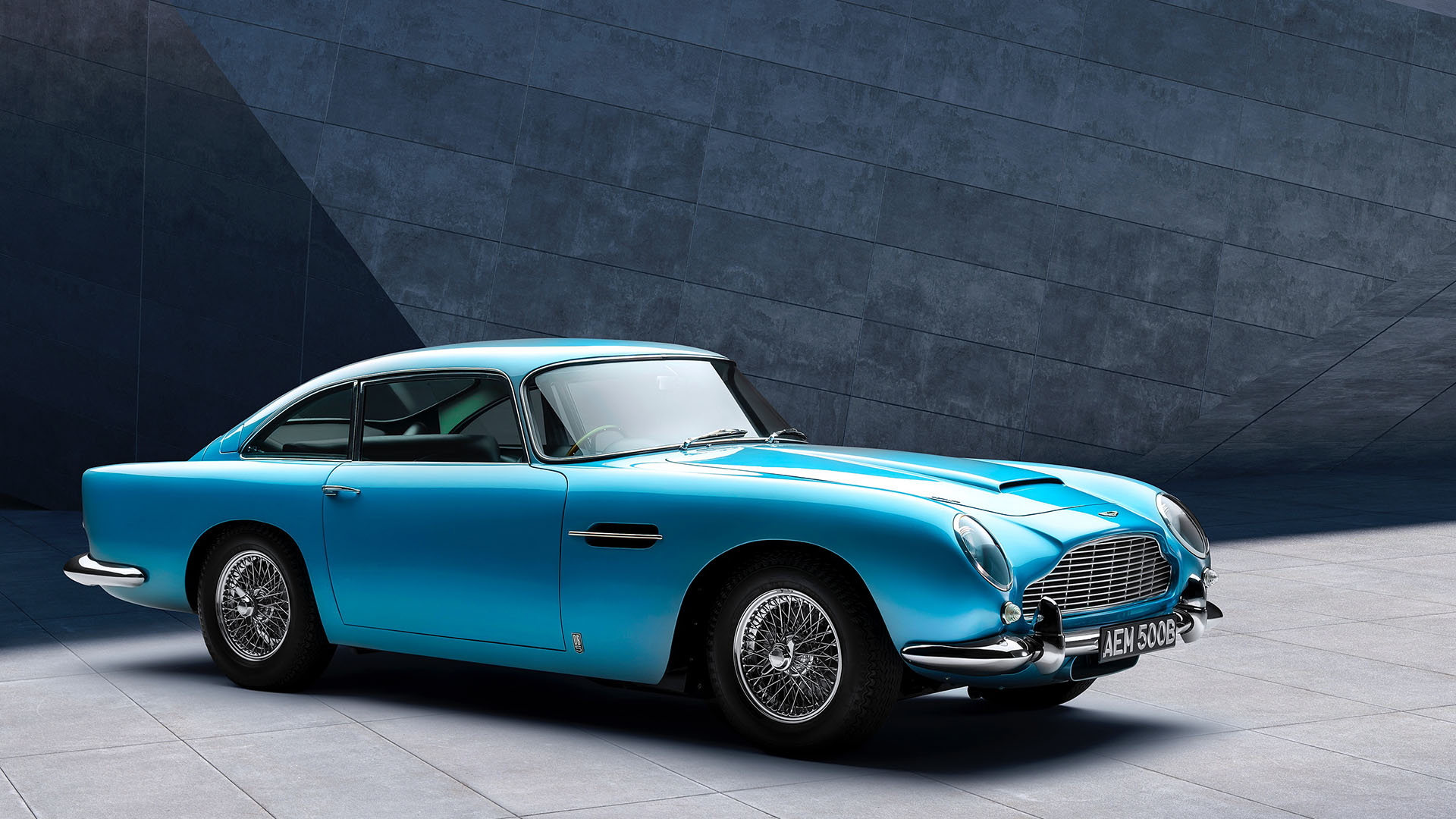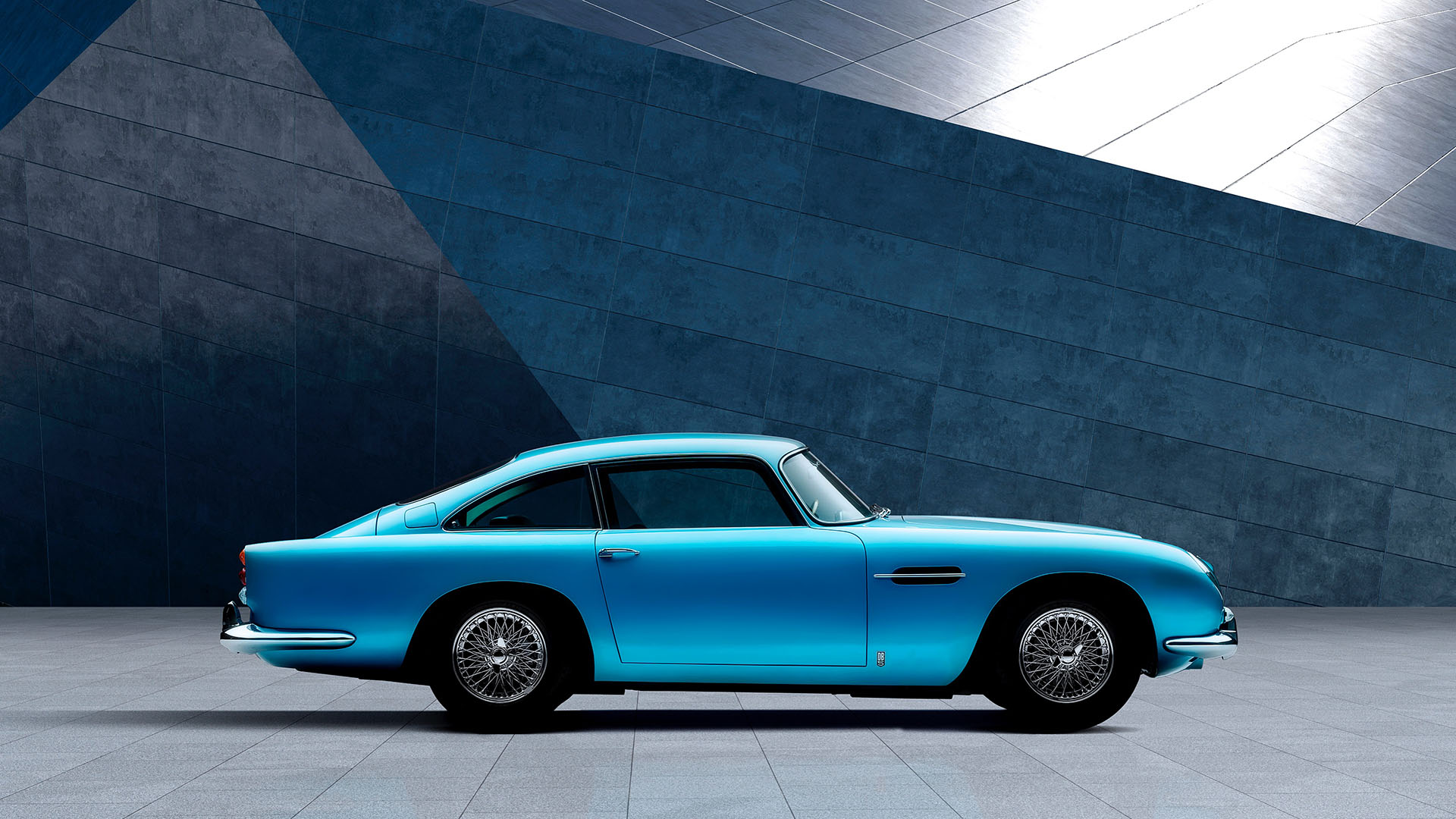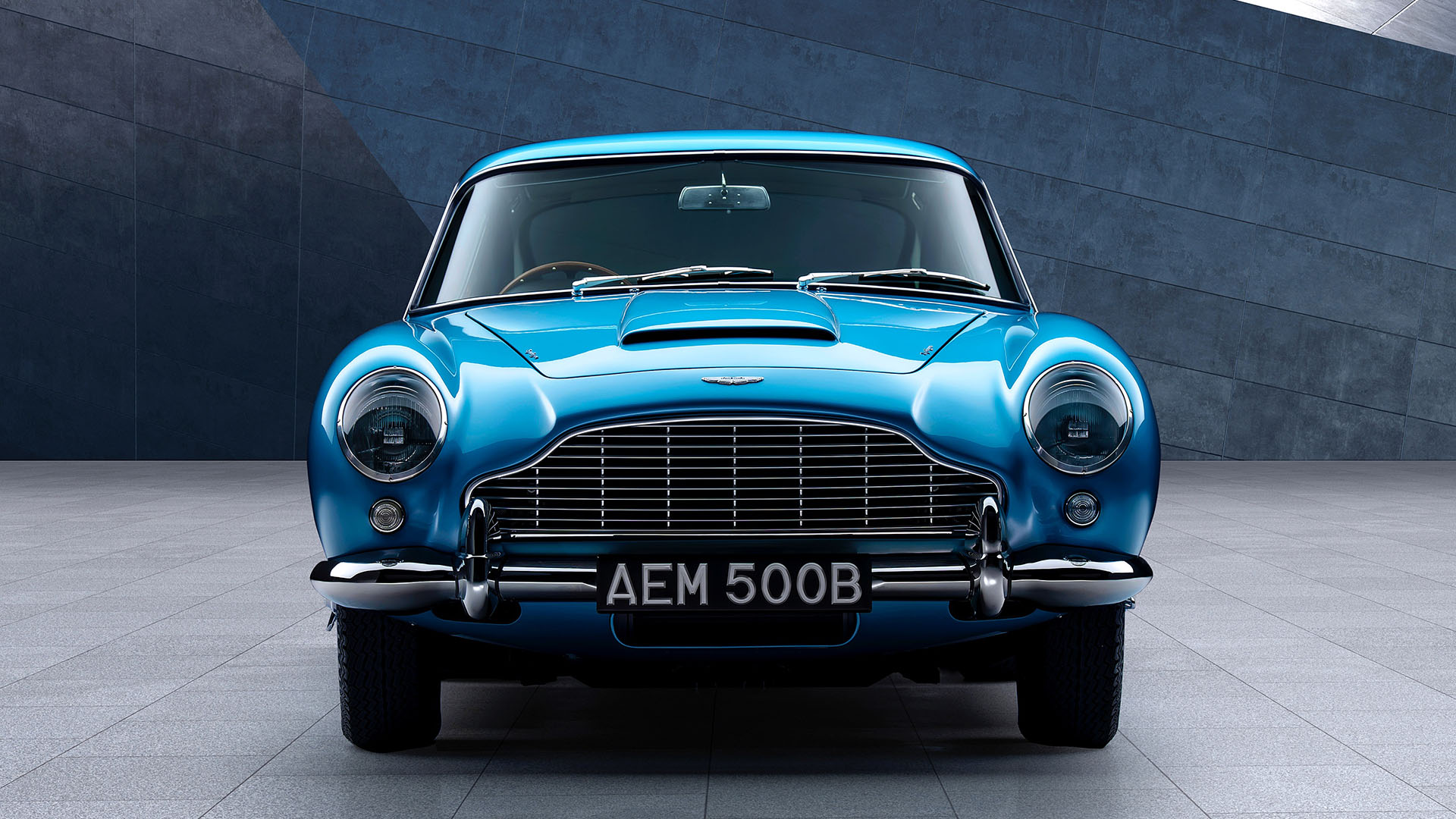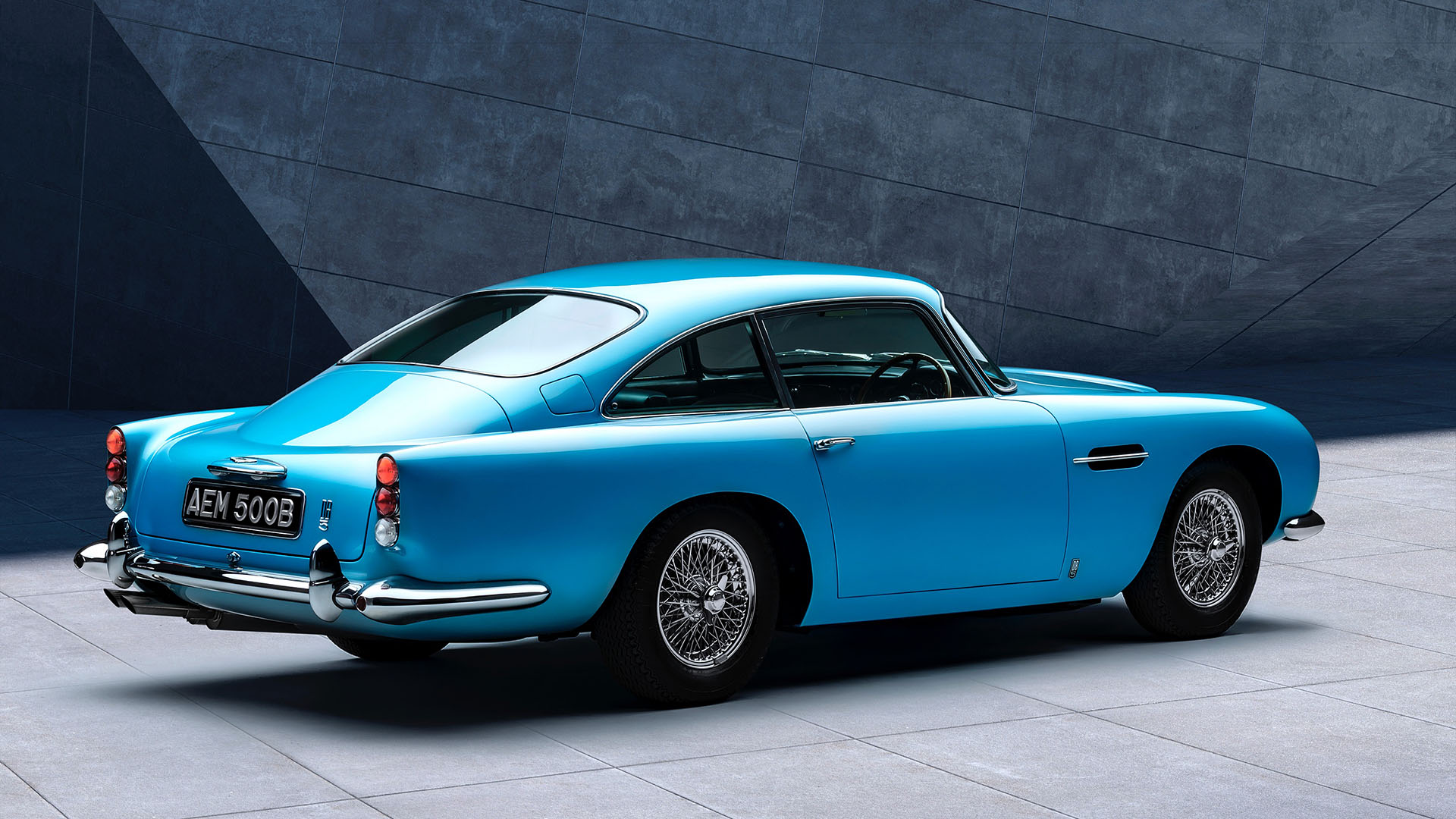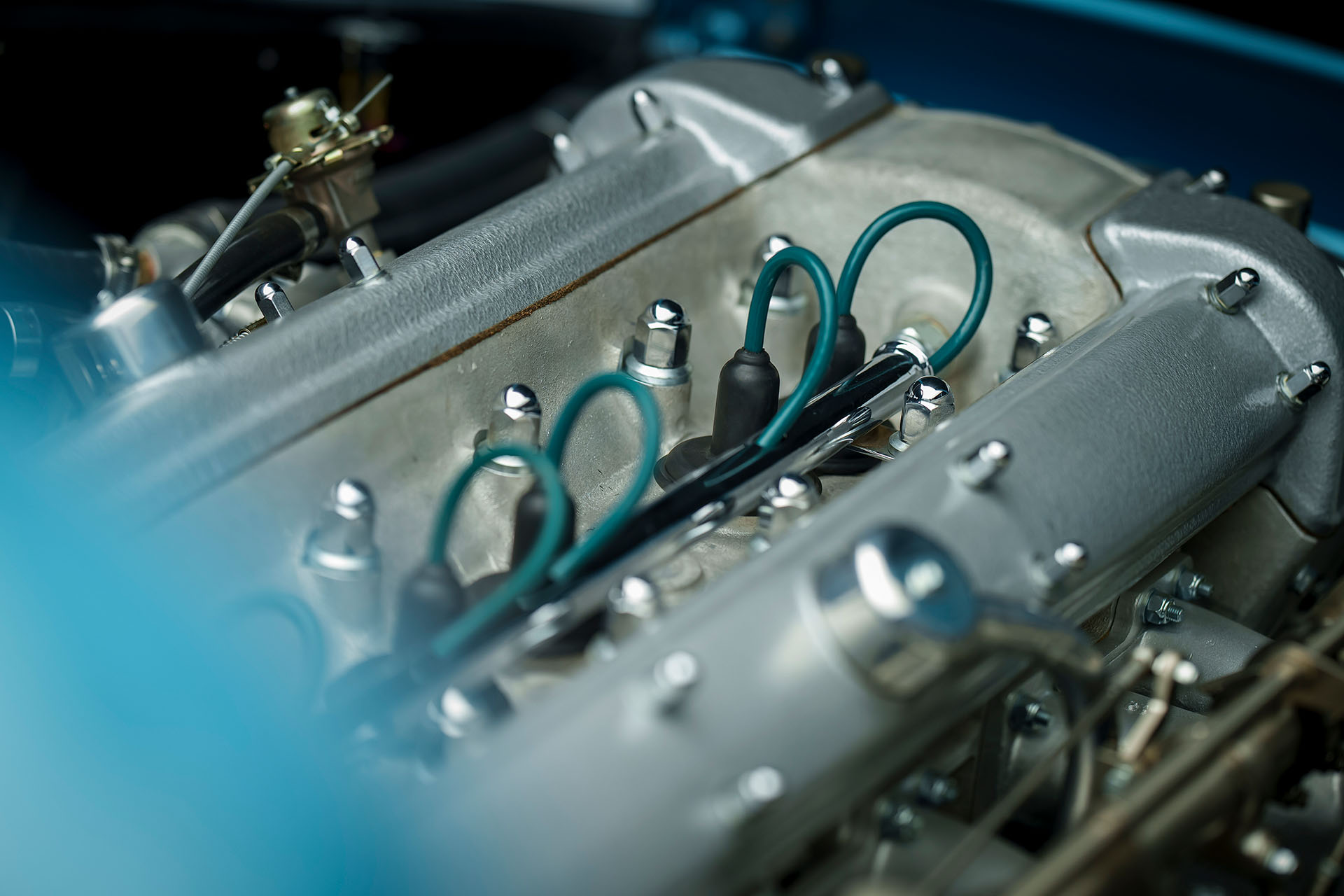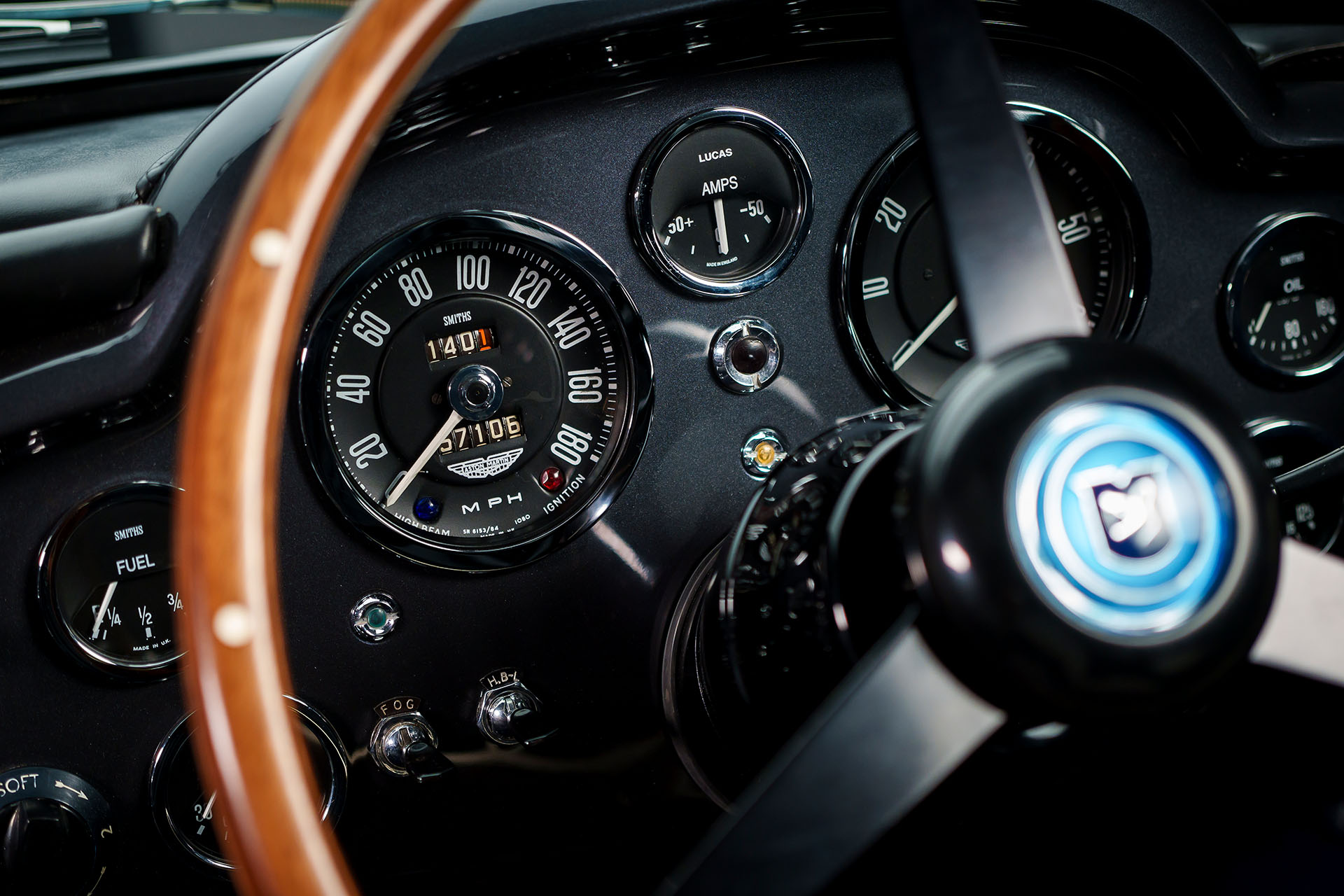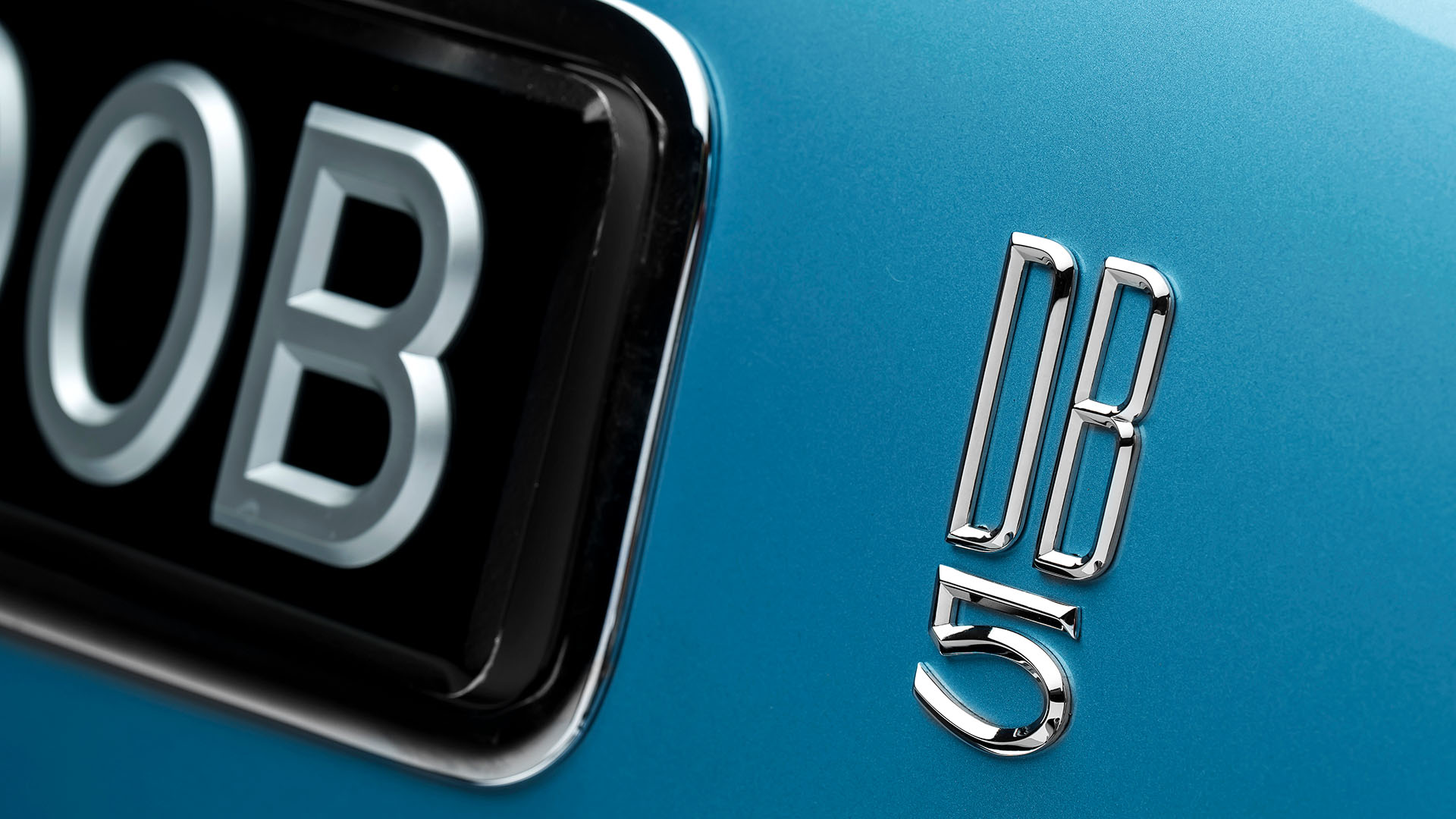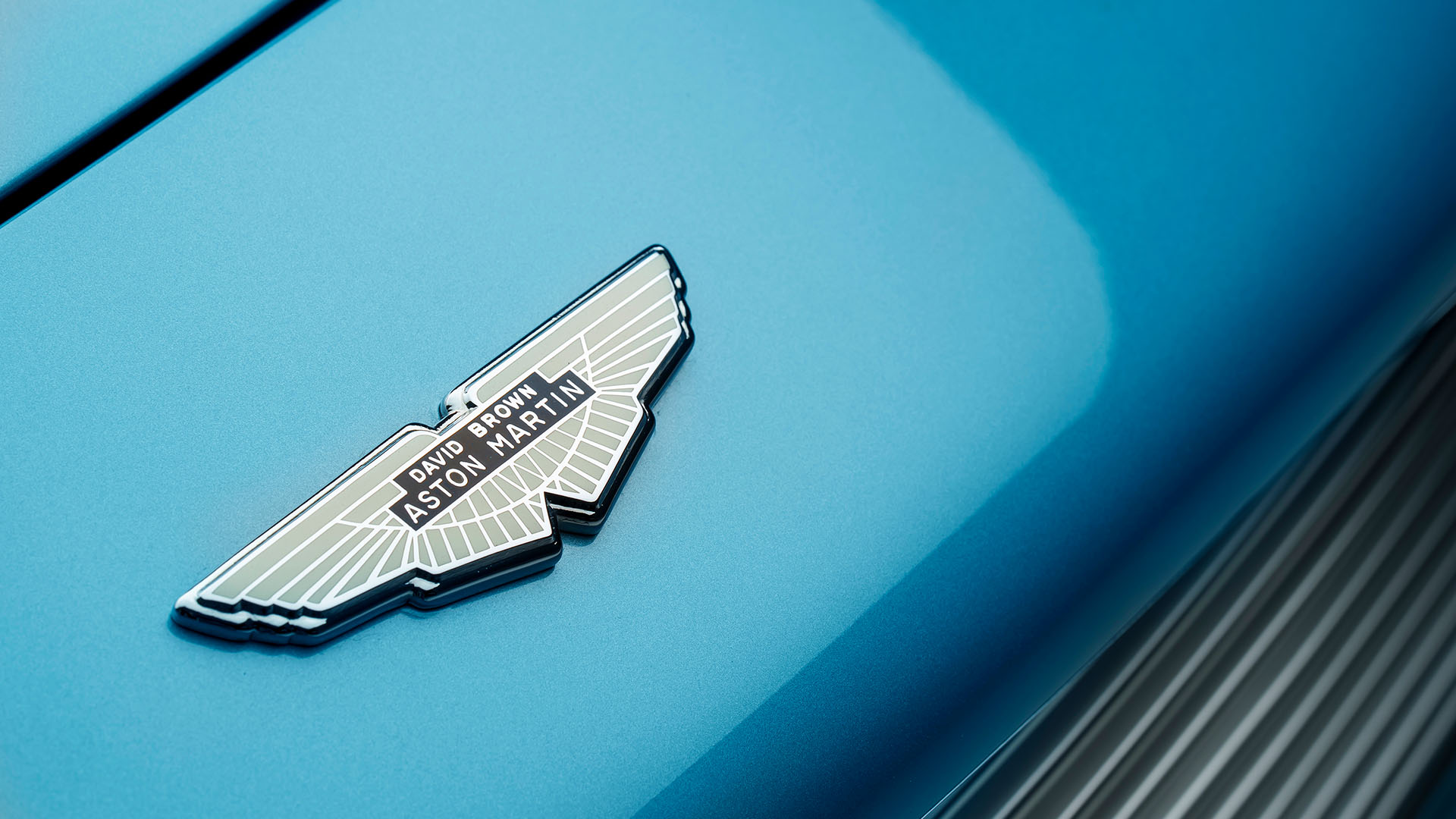The world’s most iconic car, the Aston Martin DB5, has turned 60 with Aston Martin leading the celebrations. September marks exactly 60 years since Aston Martin unveiled its then newcomer, with the model going on to become an icon of British culture, design and innovation and firmly establishing Aston Martin as one of Britain’s most desirable luxury brands.
Six decades on, the DB5 continues to be one of the world’s most iconic and recognizable cars and took center stage of Aston Martin’s presence at the Goodwood Revival festival in Sussex last weekend alongside the latest addition to the marque’s revered DB bloodline, the world’s first Super Tourer, DB12. Marking Aston Martin’s proud past and exciting future, the two models have been photographed in images released today to celebrate the landmark anniversary.
Reflecting on the enduring appeal of the DB5 as it marks its 60th anniversary, Aston Martin’s Executive Chairman, Lawrence Stroll – himself a DB5 owner – said: “The David Brown era gave us so many great Aston Martin sports cars but none more recognizable, revered, and desired as the DB5, which laid the foundations of our identity as a British luxury brand synonymous with style, performance, and exclusivity. It is only right that, as it turns 60, we take a moment to look back and reflect on this car’s incredible role in our storied 110-year heritage. We’re incredibly proud that the DB lineage continues today with the critically acclaimed DB12, which as those came before it, is a celebration of all we love about British hand-built sportscars, with a new injection of the latest technology and the highest levels of performance.”
The year was 1963. Aston Martin was riding a wave of popularity and its DB4 had been selling consistently well since it was unveiled as an entirely new car for the marque in 1958. Yet with strong competition from luxury sports car makers both at home and on the continent, something new was needed to keep the brand on top. Making its official public debut at the Frankfurt Motor Show in September 1963 the newcomer featured several design, technical and equipment changes over its predecessor – most notably a major engine development delivering even more power – that justified the use of a name entirely new to the car world of the day, but now synonymous with the ultimate in style and desirability: DB5.
The saloon and, later, convertible bearing this unmistakable moniker were in production at the brand’s Newport Pagnell, Buckinghamshire factory and headquarters for a little over two years but, in that time, set about forging a reputation and fame that, today, make them among the most desirable cars of all time.
One fictitious owner in particular springs to mind, of course, and there’s no doubt that the decision by film-makers EON Productions to put the world’s most well-known secret agent behind the wheel of the new DB5 in a series of James Bond movies over the course of more than half a century has cemented its place in the automotive hall of fame. But 007 is far from the only ‘celebrity’ to have been seen behind the wheel of this now iconic Aston Martin.
The Swinging Sixties were about to take off as crowds jostled for a glimpse of the new DB5 in Frankfurt and, within only a few years, many of the most famous actors, pop stars and celebrities of the day would be counting themselves fortunate to be among the exclusive ranks of Aston Martin ownership. Celebrated DB5 patrons in the 1960s include The Beatles’ Sir Paul McCartney and George Harrison and Rolling Stone Mick Jagger. Master comedian Peter Sellers also acquired the model, while a plethora of notable names in the years since – from Robert Plant and Jay Kay to Elle McPherson and Ralph Lauren – have ensured that saloon and convertible versions of the car alike have rarely left the limelight.
Indeed, the DB5’s celebrity appeal proved to be a springboard for success and helped take Aston Martin from a niche British sports car maker to a global automotive superstar. This is perhaps even more remarkable when set against the number of cars produced. In all, a mere 887 DB5 saloons, 123 convertibles, and 12 bespoke coach-built shooting brakes were made originally. Even by the standards of the day, these numbers were tiny, especially with UK car production totaling in excess of 1.8 million in 1963.
The DB5 displayed in Germany featured a new 4.0-liter (3,995cc) much-reworked version of the 3.7-liter, twin cam, straight six that powered the DB4, with the new engine developing what was, then, a distinctly potent 282 bhp in standard form.
That welcome extra power was part of a raft of detailed technical and equipment changes, such as the debut of electric windows and the optional availability of air conditioning, which had been painstakingly engineered to meet increasingly sophisticated and demanding customer expectations.
Performance, an Aston Martin trademark even 60 years ago, was commensurate with the car’s svelte styling – the product of Italian coachbuilder Carrozzeria Touring Superleggera – and a top speed exceeding 150 mph prompted the Aston Martin brochure of the day to claim: “The DB5 is the fastest regular 4-seat GT car in the world.”
That hugely impressive statistic, even today, helped British car magazine The Autocar to conclude in their first road test of the new model: “This is a car which cries out to be driven, to be driven well, and to be driven far.”
This grandest of grand tourers laid the groundwork for the cars that followed, with today’s DB12 – the world’s first Super Tourer – once again asserting Aston Martin’s position as a leader in performance, dynamics, engineering and technology.


